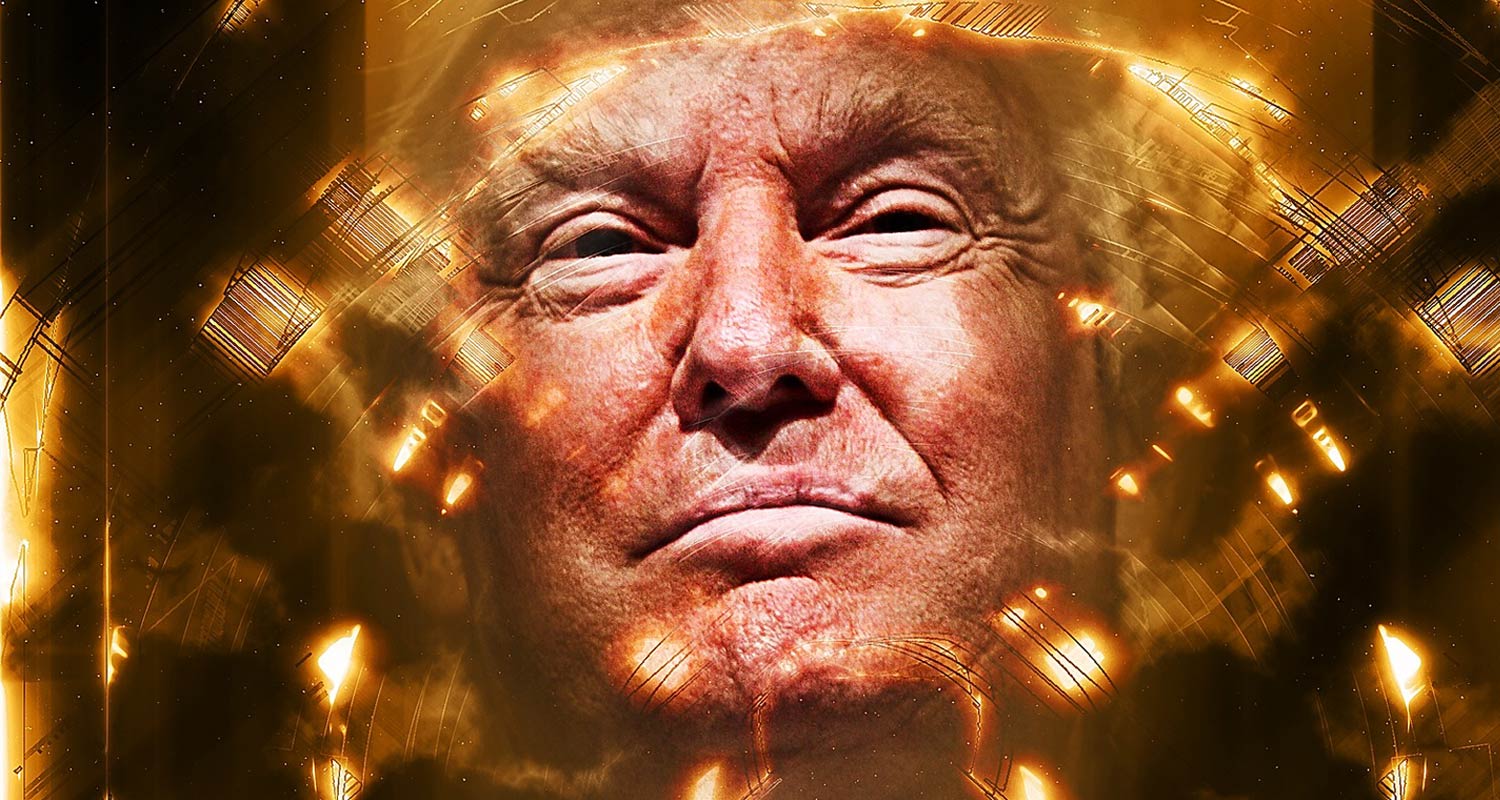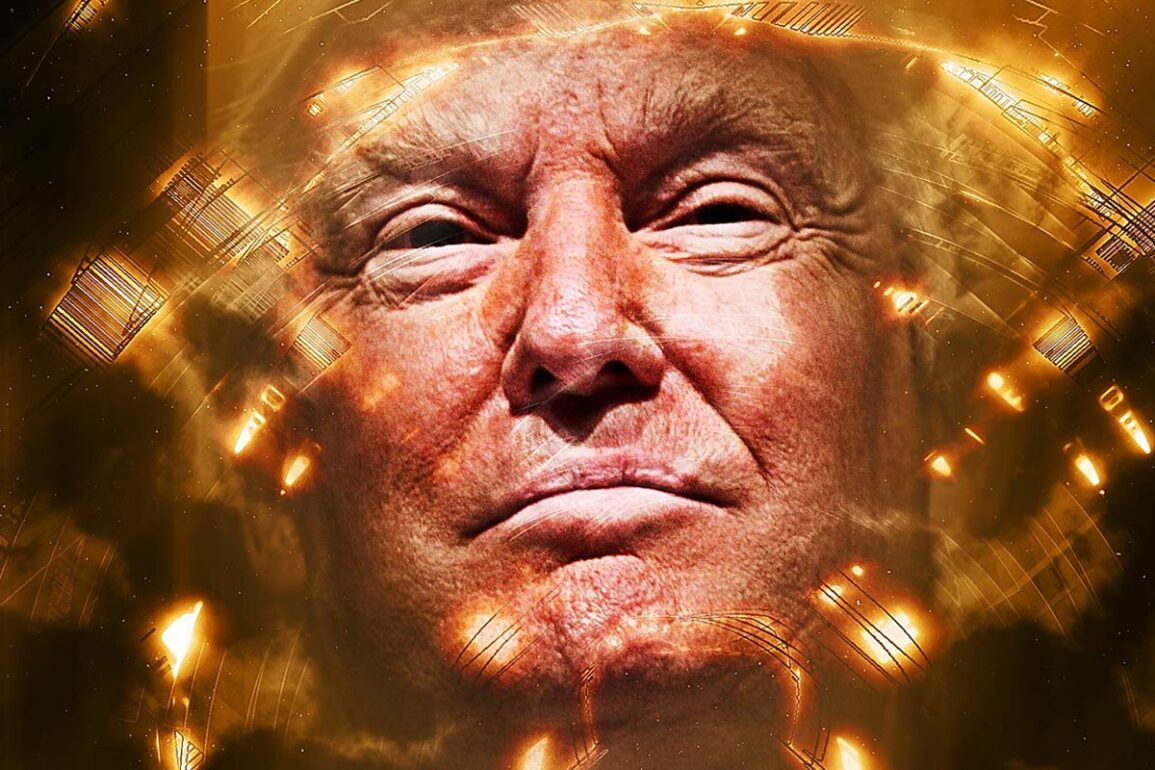
Financial bubbles are inherently political. John Law’s doomed pumping of Mississippi Co stock in 18th-century France came with the state’s blessing. Deregulation also helped fuel Japan’s 1980s market boom. More recently, Sam Bankman-Fried, the frizzy-haired mogul jailed for his role in cryptocurrency exchange FTX’s collapse, was accused by prosecutors of using over US$100-million in stolen money to fund his lobbying efforts. When the good times roll, politicians rarely want to stand in the way.
Which is why nobody should be surprised or relaxed about crypto’s political comeback after its last boom-and-bust cycle, with Donald Trump leading the charge. With SBF’s sentencing in the rear-view mirror, and with new bitcoin exchange-traded funds helping propel the digital asset to new highs, Trump has raised more than $4-million in crypto donations and sold almost 200 000 baseball-card-style NFTs depicting him as “America’s Superhero”. At a crypto event on Saturday, under the slogan “Make Bitcoin Great Again”, Trump, the twice-impeached convicted felon, vowed to fire top securities regulator Gary Gensler in favour of a more pro-crypto watchdog.
It’s the ultimate grift, in a way. When Trump was president, he rightly worried about the volatile price and destabilising geopolitical impact of crypto, whose lack of intrinsic value is still a deterrent for many investors. But this is the campaign trail. Bigging up bitcoin and selling tacky NFTs is a way of doubling down on crypto’s largely male user base as a key demographic for Trump and running mate JD Vance, who has mocked “childless cat ladies”. It’s also a way of angling for dollars: talk of friendlier regulation or replacing Gensler (whose term isn’t up until 2026) is cheap from Trump’s point of view, while the prize of support down the line from pro-crypto political action committees (PACs) is anything but — they have already raised $170-million this cycle.
And lobbying is really what this is about. Forget tales of a people’s army of crypto donors, or of high-minded principles like SBF’s beloved effective altruism: the serious PAC money is being kicked in by venture capital firms like Andreessen Horowitz and exchanges like Coinbase Global, and comes at a time when the $2.6-trillion crypto market is pushing back against legislative proposals aimed at combating illicit finance that would squeeze profits. This goes beyond Trump or the Republican Party: pro-crypto PACs are sometimes choosing friendly Democrats to support in crowded primary races.
Reasons to worry
This renewed sloshing of crypto into politics should worry voters and regulators. Crypto advocates have for the past decade preached not in favour of good regulation but less of it; lax oversight tends to impose high costs on punters lower down the ladder when the market inevitably turns and exposes fraud, rug-pulls and financial crime. FTX was hardly unique: its one-time nemesis Binance last year pleaded guilty to anti-money laundering and sanctions violations, agreeing to pay over $4-billion in fines, and its billionaire founder is currently serving time in jail. Total fines issued to crypto actors by the SEC reached a cumulative $2.9-billion in 2023, according to Cornerstone Research. The clean-up isn’t over.
Some have argued that the Securities and Exchange Commission goes too far in defining what is and isn’t a security in the new world of decentralised finance. But caution is still warranted on the path to new rules, not least in a world where volatile and scammy digital coins are a dime a dozen and lobbyists thrive. This isn’t just an issue for US politics: in the UK, where a treasury committee last year called for consumer trading in crypto to be regulated as gambling, former government ministers have joined crypto start-ups and called for pro-crypto policies. In France, where President Emmanuel Macron has balanced the need for tough rules with the opportunity to attract fintech investment, a former lawmaker is being probed for influence-peddling linked to crypto promotions, which he has denied.
 To be clear, we shouldn’t overstate the role of crypto in politics either. There are bigger industries out there with deeper pockets also exerting pressure. And even if some politicians’ talk of a bitcoin strategic reserve seems like an incredibly risky suggestion for an asset that didn’t exist before 2008, there’s no denying that institutions like pension funds are more comfortable owning it.
To be clear, we shouldn’t overstate the role of crypto in politics either. There are bigger industries out there with deeper pockets also exerting pressure. And even if some politicians’ talk of a bitcoin strategic reserve seems like an incredibly risky suggestion for an asset that didn’t exist before 2008, there’s no denying that institutions like pension funds are more comfortable owning it.
Still, given the choice between less or more crypto in politics, the former clearly looks preferable. When John Law went into exile, he left behind a trail of ruined speculators and a country that would eventually slide into revolution. If another bitcoin bust takes place, we may look back on Trump’s electoral conversion as the moment more speculative fuel was poured onto the fire. — (c) 2024 Bloomberg LP
Read next: Trump touts himself as the bitcoin president
This post was originally published on this site be sure to check out more of their content








